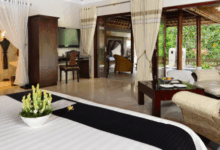All Inclusive Hotels In Germany
Germany, a land of fairytale castles and vibrant cities, offers more than just history and culture. It also boasts a growing number of all-inclusive hotels, catering to a diverse range of travelers seeking relaxation and convenience. From family-friendly resorts nestled in picturesque landscapes to luxurious spas offering rejuvenating treatments, these hotels provide a comprehensive vacation experience, seamlessly blending German hospitality with the ease of an all-inclusive package.
This guide delves into the world of all-inclusive hotels in Germany, exploring their geographic distribution, amenities, pricing, and overall value, allowing you to plan your perfect German getaway.
We’ll examine the various types of all-inclusive options available, comparing amenities and price points across different regions and hotel brands. We’ll also consider the target audience for these hotels, exploring how marketing strategies cater to families, couples, and business travelers. Finally, we’ll compare the German all-inclusive experience to other European destinations, highlighting unique aspects and offering insights into seasonal variations and booking strategies for optimal value.
Geographic Distribution of All-Inclusive Hotels in Germany
Germany’s all-inclusive hotel market, while smaller than in some other European countries, is experiencing growth, particularly in specific regions catering to diverse tourism preferences. The concentration of these hotels is not uniform across the country, with certain areas exhibiting a higher density and offering distinct all-inclusive experiences.The distribution of all-inclusive hotels in Germany is largely influenced by factors such as proximity to popular tourist attractions, existing resort infrastructure, and the target market segment.
Coastal regions and areas with established spa towns tend to have a higher concentration of these establishments.
Regional Distribution of All-Inclusive Hotels
The following table provides a summary of the regional distribution of all-inclusive hotels in Germany. It’s important to note that precise numbers can fluctuate and this data represents a general overview based on available information. Precise figures are difficult to obtain due to the lack of a centralized, comprehensive database specifically for all-inclusive hotels in Germany. The average price range is a broad estimate and can vary significantly depending on the season, hotel amenities, and room type.
| Region | Number of Hotels (Estimate) | Average Price Range (per night, per person) | Hotel Types |
|---|---|---|---|
| Baltic Coast (e.g., Mecklenburg-Vorpommern) | 50-75 | €80-€200 | Family-friendly resorts, beach hotels, some spa hotels |
| North Sea Coast (e.g., Schleswig-Holstein, Lower Saxony) | 30-50 | €70-€180 | Beach hotels, family-friendly resorts, some smaller boutique hotels with all-inclusive options |
| Bavaria (especially lake regions) | 20-40 | €90-€250 | Luxury resorts, spa hotels, family-friendly hotels with mountain views |
| Black Forest | 15-30 | €80-€220 | Spa hotels, family-friendly hotels with hiking and nature activities |
| Other Regions | Scattered, < 10 per region | Variable | Smaller hotels offering all-inclusive packages, often focused on specific niches (e.g., cycling, wine tasting) |
Amenities and Services Offered
German all-inclusive hotels, while less prevalent than in other parts of the world, are increasingly offering comprehensive packages designed to cater to a variety of needs. These packages typically aim to provide a hassle-free and enjoyable stay, bundling various amenities and services into one convenient price. The specific offerings, however, can vary significantly depending on the hotel’s brand, location, and target market.The typical all-inclusive package in a German hotel might include accommodation, meals (often buffet-style with regional specialties), and a selection of beverages.
Some hotels may also include access to spa facilities, such as saunas or swimming pools. The level of inclusivity can range from basic packages encompassing only the essentials to more luxurious options that encompass a wider range of services, including activities, excursions, and entertainment. It’s crucial to carefully review the specific inclusions before booking to avoid any surprises.
Comparison of Amenities Across Hotel Chains
Different hotel chains and brands in Germany approach all-inclusive packages with varying degrees of comprehensiveness. Larger international chains might offer standardized packages across their properties, ensuring a consistent experience for guests. However, independent hotels or smaller chains may offer more tailored and personalized all-inclusive options, reflecting the unique character of the hotel and its location. For example, a family-oriented resort might prioritize children’s activities and amenities, while a spa hotel might focus on wellness treatments and relaxation services.
A comparison would reveal that luxury chains often include higher-quality food and beverage options, premium spa access, and perhaps even private concierge services, whereas budget-friendly chains might offer a more basic selection of amenities. The price point directly correlates with the range and quality of the services provided.
Unique and Unusual Amenities in German All-Inclusive Hotels
Many German all-inclusive hotels strive to provide unique experiences to stand out from the competition. While the core amenities are usually similar, certain establishments offer distinctive features that enhance the guest experience.
- Guided Hiking or Cycling Tours: Some hotels located in scenic regions incorporate guided excursions into their packages, allowing guests to explore the surrounding natural beauty. This might involve providing bikes, maps, and a knowledgeable guide to lead the group through trails or routes.
- Cooking Classes Featuring Regional Cuisine: Several hotels offer interactive cooking classes, teaching guests how to prepare traditional German dishes using local ingredients. This provides a hands-on cultural experience and allows guests to recreate the culinary delights of their stay at home.
- Access to Local Breweries or Vineyards: In regions renowned for their beer or wine production, some all-inclusive hotels may include visits to local breweries or vineyards, allowing guests to sample regional products and learn about the production process. This could involve guided tours and tastings.
- Wellness Programs with Traditional German Therapies: Hotels focusing on wellness might incorporate traditional German therapies, such as Kneipp treatments or herbal baths, into their all-inclusive packages. These therapies often use natural ingredients and focus on holistic well-being.
- Cultural Events and Performances: Some hotels organize or provide access to local cultural events, such as concerts, folk music performances, or traditional festivals, enriching the guest experience beyond the hotel’s facilities.
Pricing and Value for Money
All-inclusive hotels in Germany offer a range of price points, varying significantly based on location, time of year, hotel amenities, and the specific package chosen. Understanding the cost and what’s included is crucial for maximizing your value. This section explores the pricing structure and demonstrates the value proposition of all-inclusive stays in different German regions.
The cost of an all-inclusive stay can fluctuate greatly depending on several factors. Peak season (summer months and holidays) will naturally command higher prices than the shoulder seasons (spring and autumn). Luxury hotels in prime locations like the Bavarian Alps or coastal regions will also be more expensive than those in smaller towns or less popular areas. The length of your stay also plays a role, with longer stays often offering slightly better value per night.
All-Inclusive Package Examples and Price Ranges
The following table provides examples of all-inclusive packages and their associated price ranges in various German locations. Please note that these are illustrative examples and prices can vary based on the factors mentioned above. It’s always recommended to check directly with the hotel or a reputable booking site for the most up-to-date pricing.
| Location | Hotel Name (Example) | Price Range (per person, per night) | Inclusions |
|---|---|---|---|
| Bavarian Alps | Schlosshotel (Example) | €200 – €400 | Accommodation, breakfast, lunch, dinner, drinks (alcoholic and non-alcoholic), access to spa facilities, some activities (e.g., hiking tours). |
| Black Forest | Landhotel (Example) | €150 – €250 | Accommodation, breakfast, lunch, dinner, selected drinks, use of swimming pool, access to bike rentals. |
| Rügen Island | Seaside Resort (Example) | €180 – €300 | Accommodation, breakfast, lunch, dinner, buffet options, beach access, some entertainment programs. |
| Berlin | City Hotel (Example) | €120 – €200 | Accommodation, breakfast, some meals (lunch or dinner may be excluded or offered as an upgrade), access to fitness center. |
Target Audience and Demographics
All-inclusive hotels in Germany cater to a diverse range of guests, but certain demographic profiles are more prevalent than others. Understanding these target audiences is crucial for effective marketing and service provision. The typical guest profile is influenced by factors such as travel purpose, budget, and desired amenities.The primary demographic groups attracted to all-inclusive resorts in Germany include families, couples, and, to a lesser extent, groups of friends.
Business travelers are less likely to choose this model due to the lack of flexibility and potentially higher overall cost compared to business-focused hotels offering individual services. However, some all-inclusive resorts may offer packages tailored to smaller corporate retreats or team-building events.
Marketing Strategies for Specific Target Audiences
Marketing strategies employed by German all-inclusive hotels are carefully tailored to appeal to their specific target audiences. For families, marketing emphasizes child-friendly amenities such as kids’ clubs, playgrounds, and family-sized rooms. Promotional materials often feature images of happy families enjoying resort activities. Advertising campaigns may run during school holidays and utilize family-oriented media channels. For couples, the focus shifts to romantic getaways and relaxation.
Marketing materials showcase luxurious spa treatments, private balconies, and intimate dining experiences. Romantic packages and special offers are frequently advertised through travel websites and lifestyle magazines.
Typical Guest Experience: Families
A typical family’s experience at a German all-inclusive hotel might begin with a warm welcome and assistance with luggage. The family is shown to their spacious room, perhaps with connecting rooms or a suite to accommodate everyone comfortably. The children are quickly drawn to the kids’ club, where supervised activities keep them entertained throughout the day. Parents can relax by the pool, enjoy the spa, or participate in organized activities.
Meals are plentiful and varied, with options for both adults and children. Evenings might include family-friendly entertainment, such as live music or a children’s show. The all-inclusive nature ensures that the family doesn’t have to worry about unexpected costs, allowing them to fully relax and enjoy their holiday without constantly checking their wallets. The overall experience is designed to create lasting positive memories for the whole family, fostering a sense of togetherness and relaxation within a comfortable and well-provided-for environment.
Comparison with Other European Destinations
All-inclusive holidays are increasingly popular, and Germany, while not traditionally known for this model, offers a growing number of options. Comparing the German all-inclusive experience with that of other established European destinations provides valuable context for understanding its unique features and appeal. This comparison considers pricing, amenities, and the overall holiday experience.
All-Inclusive Hotel Experiences Across Europe: A Comparative Analysis
The following table compares the all-inclusive hotel experience in Germany with those in other popular European countries. Note that average prices are estimates and can vary significantly based on factors such as location, time of year, and hotel star rating. The amenities and unique selling points listed are common but not universally present in all hotels within a given country.
| Country | Average Price (per person, per week, high season) | Typical Amenities | Unique Selling Points |
|---|---|---|---|
| Germany | €800 – €1500 | Buffet-style meals, some drinks included, basic recreational facilities (e.g., pool, sauna), sometimes children’s activities. | Focus on local experiences and excursions, integration of German culture and cuisine. Often located near scenic areas or cities. |
| Spain | €700 – €1200 | Extensive buffet choices, wide selection of alcoholic and non-alcoholic drinks, multiple pools, extensive entertainment programs, children’s clubs. | Wide range of resorts catering to different preferences, typically located in coastal areas, emphasis on sun, sea, and sand. Strong emphasis on family-oriented activities. |
| Turkey | €600 – €1000 | Similar to Spain, often with even more extensive amenities and entertainment options, including water parks and extensive spa facilities. | Generally very affordable, huge variety of resorts, often all-inclusive options available even in smaller hotels. Known for its rich history and cultural attractions available for excursions. |
| Greece | €900 – €1800 | High-quality food and drink options, often featuring local specialties, stunning locations with sea views, emphasis on relaxation and wellness. | Beautiful beaches and islands, rich history and mythology, focus on authentic Greek experiences. A wider range of luxury options than many other countries. |
| Italy | €1000 – €2000 | Focus on high-quality Italian cuisine, often including wine with meals, some resorts offer cooking classes or wine tasting experiences. May include access to nearby attractions. | Emphasis on culinary experiences, stunning scenery, opportunities to explore historical cities and towns. Often features a more boutique and luxurious feel than other destinations. |
Seasonal Variations and Booking Strategies
Germany’s all-inclusive hotel market experiences significant seasonal fluctuations, impacting both pricing and availability. The peak season, generally spanning from June to August, sees a surge in demand driven by favorable weather and school holidays. Conversely, the shoulder seasons (spring and autumn) offer a balance of pleasant weather and lower prices, while the winter months (November to March) often present the most affordable options, though with limited hotel openings and potentially fewer amenities available.
Understanding these variations is key to securing the best value for your all-inclusive getaway.The optimal time to book for optimal value and availability depends on individual preferences and priorities. For those seeking warm weather and a vibrant atmosphere, booking well in advance for the peak summer months is crucial, as availability diminishes rapidly. However, those willing to compromise on ideal weather conditions can find excellent deals during the shoulder seasons by booking a few months in advance.
Winter bookings, while potentially offering the lowest prices, should be made with caution due to the reduced number of open hotels and potential limitations on outdoor activities. Flexibility in travel dates within the shoulder seasons also significantly increases the chance of finding better deals.
Peak Season Pricing and Availability
During the peak summer months (June-August), expect higher prices and limited availability for all-inclusive hotels in Germany. Popular destinations like the Baltic coast or the Bavarian Alps will see the most significant price increases. This is due to the high demand from both domestic and international tourists. Many hotels require bookings months, even a year, in advance to secure a spot during this period.
Last-minute bookings are unlikely to yield favorable results. To illustrate, a family-sized room in a popular Black Forest resort might cost €200 per night in July, compared to €120 in May or September.
Shoulder Season Booking Strategies
The shoulder seasons (April-May and September-October) present an excellent opportunity to enjoy pleasant weather and lower prices. Hotels often offer attractive discounts and packages to fill rooms during these less crowded periods. Booking two to three months in advance is usually sufficient to secure a good deal. For example, a spa resort in the Rhine Valley might offer a 15% discount on all-inclusive packages booked in March for a stay in April.
This strategy allows for better planning and potentially avoids the last-minute rush and higher prices of peak season.
Finding the Best Deals on All-Inclusive Packages
Finding the best deals on all-inclusive packages in Germany requires a proactive approach. Utilizing online travel agencies (OTAs) and comparing prices across multiple platforms is essential. Many OTAs offer price comparison tools and filter options to refine searches based on specific dates, budget, and amenities. Subscribing to email newsletters from hotels and OTAs can also alert travelers to special offers and last-minute deals.
Consider traveling mid-week or during off-peak periods within the shoulder seasons for additional savings. Furthermore, exploring lesser-known destinations within Germany can uncover hidden gems and more affordable options compared to popular tourist hotspots. Flexibility and thorough research are key to securing the most attractive all-inclusive package.
Sustainability and Eco-Friendly Practices
The increasing awareness of environmental concerns is driving a shift towards sustainable tourism practices globally, and Germany’s all-inclusive hotel sector is beginning to respond. While the all-inclusive model, by its nature, can present challenges to sustainability due to high consumption levels, many hotels are actively implementing initiatives to minimize their environmental footprint and promote responsible tourism. This section will explore the eco-friendly practices adopted by some German all-inclusive hotels and discuss the potential environmental impact of this tourism model.While comprehensive data on the sustainability practices of all German all-inclusive hotels is limited, a growing number are adopting various eco-friendly strategies.
These efforts range from small-scale initiatives to more comprehensive programs designed to reduce waste, conserve energy and water, and support local communities. This commitment reflects both a response to consumer demand for responsible travel and a recognition of the long-term viability of sustainable business practices.
Examples of Sustainable All-Inclusive Hotels in Germany
Several hotels in Germany are showcasing leadership in sustainable tourism. While specific data on all their practices may not be publicly available, many emphasize their commitment to environmental protection through their marketing materials. For example, some hotels may highlight their use of locally sourced food, reducing transportation emissions and supporting local farmers. Others may promote energy-saving technologies such as LED lighting and smart thermostats, while others might invest in renewable energy sources like solar panels to power some of their operations.
These initiatives, although varying in scale, demonstrate a commitment to minimizing the environmental impact of their operations. A hypothetical example could be a hotel in the Bavarian Alps that uses geothermal energy for heating and partners with local organic farms for food supplies. This would minimize reliance on fossil fuels and reduce food miles. Another example might be a coastal hotel that implements a robust recycling program and utilizes water-saving fixtures.
Potential Environmental Impact of All-Inclusive Tourism in Germany and Mitigation Strategies
The all-inclusive model, while offering convenience to guests, can have significant environmental consequences if not managed responsibly.
The potential environmental impacts of all-inclusive tourism in Germany include:
- Increased energy consumption from heating, cooling, and lighting large facilities.
- Higher water usage due to extensive amenities like pools and spas.
- Waste generation from food consumption, packaging, and toiletries.
- Increased carbon emissions from transportation of guests and supplies.
- Potential strain on local resources, including water and energy.
- Loss of biodiversity due to habitat destruction or disruption from hotel development.
Mitigation strategies to reduce the environmental impact include:
- Investing in renewable energy sources (solar, wind, geothermal).
- Implementing water conservation measures (low-flow fixtures, rainwater harvesting).
- Reducing food waste through careful planning and portion control.
- Using sustainable and locally sourced food and beverages.
- Promoting eco-friendly transportation options (public transport, cycling).
- Implementing robust waste management and recycling programs.
- Partnering with local environmental organizations for conservation efforts.
- Educating guests about sustainable tourism practices.
Ultimate Conclusion
Planning a trip to Germany and considering an all-inclusive hotel? This guide has provided a comprehensive overview of what to expect, from the diverse range of amenities and price points to the best times to book and the unique experiences available. Whether you’re seeking a family-friendly adventure, a romantic escape, or a relaxing spa break, Germany’s all-inclusive hotels offer a convenient and enjoyable way to explore this beautiful country.
Remember to factor in your preferred region, desired amenities, and budget when making your choice, and don’t hesitate to explore the frequently asked questions below for additional guidance in your planning process. Happy travels!
Q&A
What is typically included in an all-inclusive hotel package in Germany?
All-inclusive packages in Germany usually cover accommodation, meals (breakfast, lunch, and dinner), and often drinks. Specific inclusions vary by hotel, but may also include activities, entertainment, and access to facilities like pools and spas.
Are all-inclusive hotels in Germany suitable for families?
Many all-inclusive hotels in Germany cater specifically to families, offering kids’ clubs, family rooms, and child-friendly amenities. However, it’s always advisable to check the specific amenities offered by each hotel before booking.
How far in advance should I book an all-inclusive hotel in Germany?
Booking in advance, especially during peak season, is recommended to secure your preferred dates and potentially benefit from early bird discounts. The optimal booking window depends on the season and specific hotel.
What are some eco-friendly all-inclusive hotels in Germany?
Several German all-inclusive hotels are increasingly adopting sustainable practices. Look for hotels with certifications or those actively promoting eco-friendly initiatives on their websites. Contact the hotels directly to inquire about their specific sustainability programs.
Can I find all-inclusive deals in Germany outside of peak season?
Yes, booking during the shoulder seasons (spring and autumn) often offers better value and availability, with potentially lower prices and fewer crowds.









